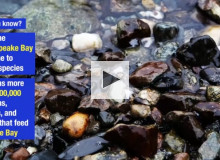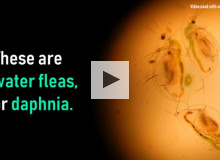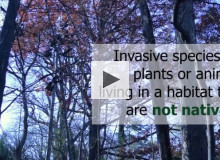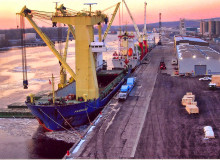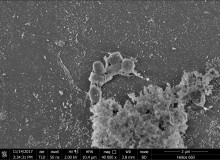Water
Planet Forward Senior Correspondent
Despite the devastating impacts of colonization, the Kashia Band of Pomo Indians have persevered in restoring their ecosystem and culture. Learn how the Kashia have lived in and managed the Sonoma County coastal environment for centuries.
George Washington University
Recycling is not the answer — not anymore. Here's how a circular economy can both reduce waste and lessen the climate crisis — and why we need to change our mindset now.
George Washington University
My video tells the story of the growing population in the Chesapeake watershed and it's relationship to the dead zones in the Bay. I attempted to gather a wide range of video to show the interconnectedness of animals, humans, and plants in the Bay... Read More
Planet Forward Senior Correspondent
Algae blooms have created toxic conditions in lakes around the world, but is there a way to naturally control them?
The George Washington University
How does the D.C. area manage invasive species? Here's a look at the problems local ecosystems face and how experts and volunteers are tackling them.
Planet Forward Senior Correspondent | Reed College
While Portland is known for its progressive politics, the nearby Williamette River revealed environmental neglect, spurring a grassroots energy for reform.
Planet Forward Correspondent | SUNY Plattsburgh
Marine group works with ports to provide cleaner air and waterways through voluntary environmental certification program, offering economic and community benefits.
George Washington University
By no longer allowing California's swordfish fishery to use driftnets, the state has prioritized the creation of an environmentally sound industry and stood up against outdated, harmful practices.
Planet Forward Senior Correspondent | Reed College
There have been 9.1 billion tons of plastic produced since the 1950s — with no efficient way of getting rid of it. Luckily, a recent college graduate may have found a new solution to combat our plastic waste.
Planet Forward Correspondent | Northwestern University
The Chicago River has been used and abused for decades. Learn about the renaissance the river and its watershed is experiencing thanks to the cleanup efforts of the city and groups like Friends of the Chicago River.


